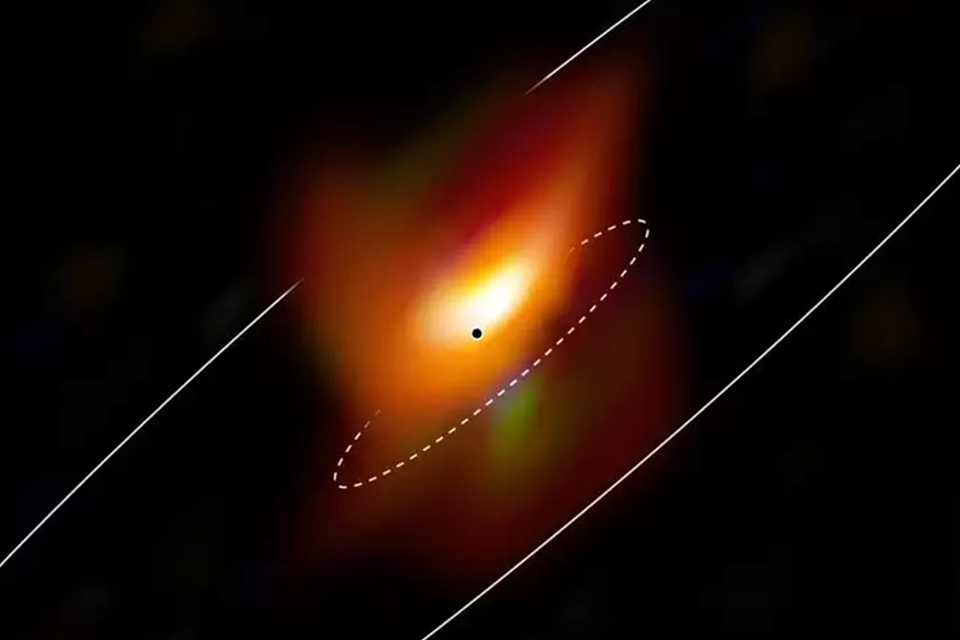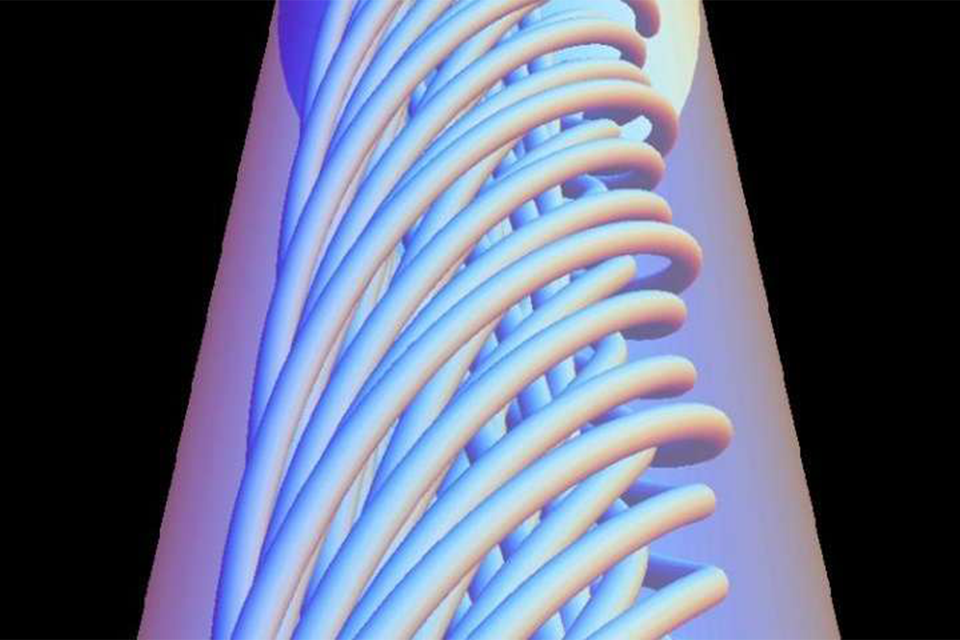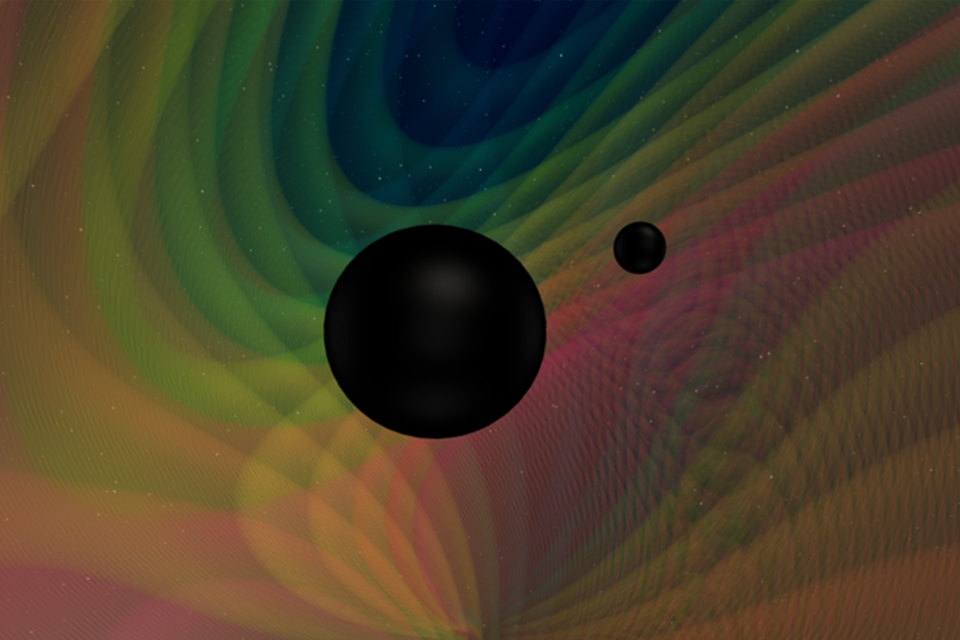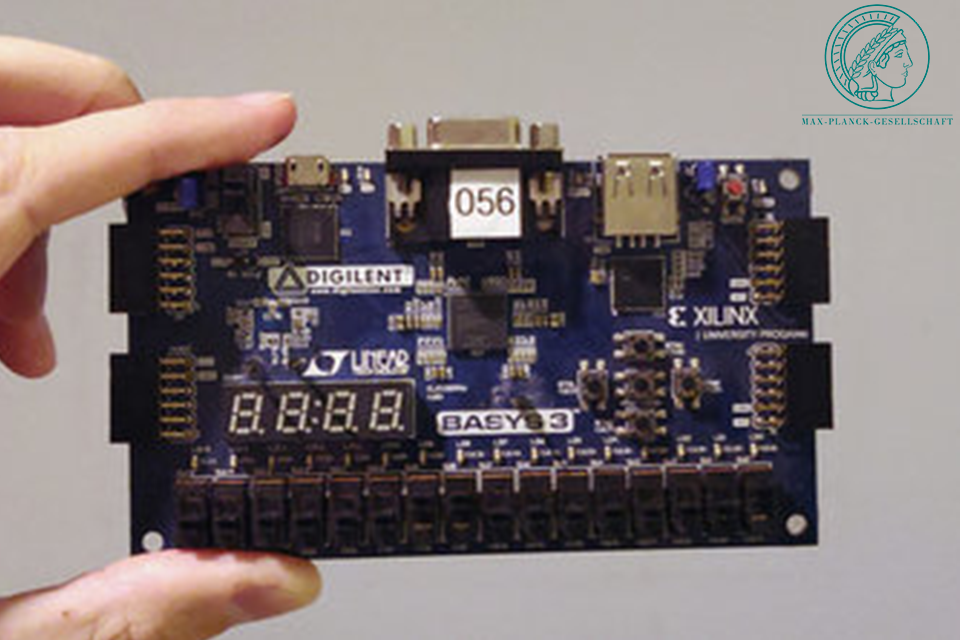Black hole behind a cosmic ring of dust
At the heart of the galaxy NGC 1068 lurks a supermassive black hole, hidden behind a cosmic dust cloud. Using the Very Large Telescope of the European Southern Observatory (ESO), an international team of astronomers has unveiled this supermassive gravity trap. The researchers, including scientists from the Max Planck Institutes for Astronomy and Radio Astronomy, gained new insights into the mechanisms of active galactic nuclei, some of the brightest and most enigmatic objects in the universe. They also confirmed a 30-year-old theory.






